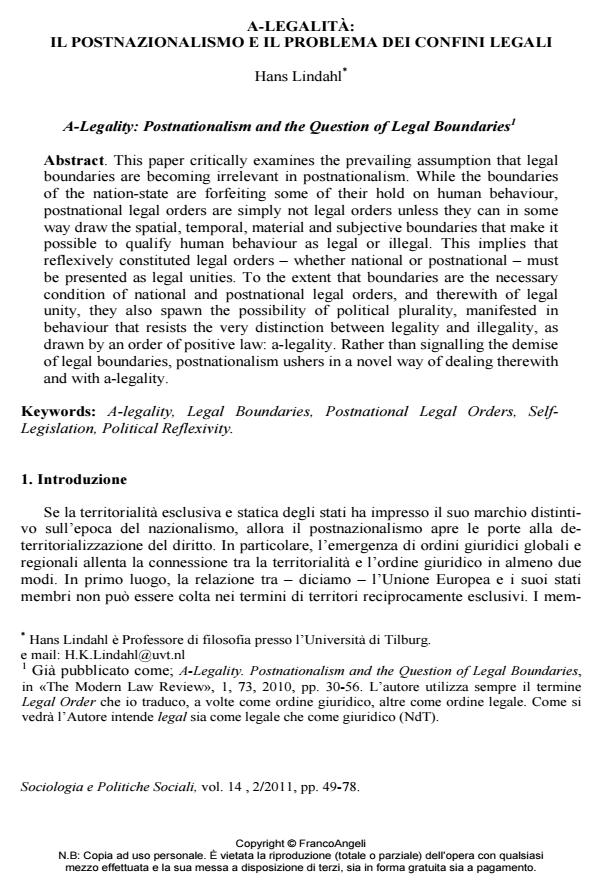A-Legality: Postnationalism and the Question of Legal Boundaries
Journal title SOCIOLOGIA E POLITICHE SOCIALI
Author/s Hans Lindahl
Publishing Year 2011 Issue 2011/2
Language Italian Pages 30 P. 49-78 File size 607 KB
DOI 10.3280/SP2011-002003
DOI is like a bar code for intellectual property: to have more infomation
click here
Below, you can see the article first page
If you want to buy this article in PDF format, you can do it, following the instructions to buy download credits

FrancoAngeli is member of Publishers International Linking Association, Inc (PILA), a not-for-profit association which run the CrossRef service enabling links to and from online scholarly content.
This paper critically examines the prevailing assumption that legal boundaries are becoming irrelevant in postnationalism. While the boundaries of the nation-state are forfeiting some of their hold on human behaviour, postnational legal orders are simply not legal orders unless they can in some way draw the spatial, temporal, material and subjective boundaries that make it possible to qualify human behaviour as legal or illegal. This implies that reflexively constituted legal orders - whether national or postnational - must be presented as legal unities. To the extent that boundaries are the necessary condition of national and postnational legal orders, and therewith of legal unity, they also spawn the possibility of political plurality, manifested in behaviour that resists the very distinction between legality and illegality, as drawn by an order of positive law: a-legality. Rather than signalling the demise of legal boundaries, postnationalism ushers in a novel way of dealing therewith and with a-legality.
Keywords: A-legality, Legal Boundaries, Postnational Legal Orders, Self- Legislation, Political Reflexivity
Hans Lindahl, A-Legalità: il Postnazionalismo e il problema dei confini legali in "SOCIOLOGIA E POLITICHE SOCIALI" 2/2011, pp 49-78, DOI: 10.3280/SP2011-002003